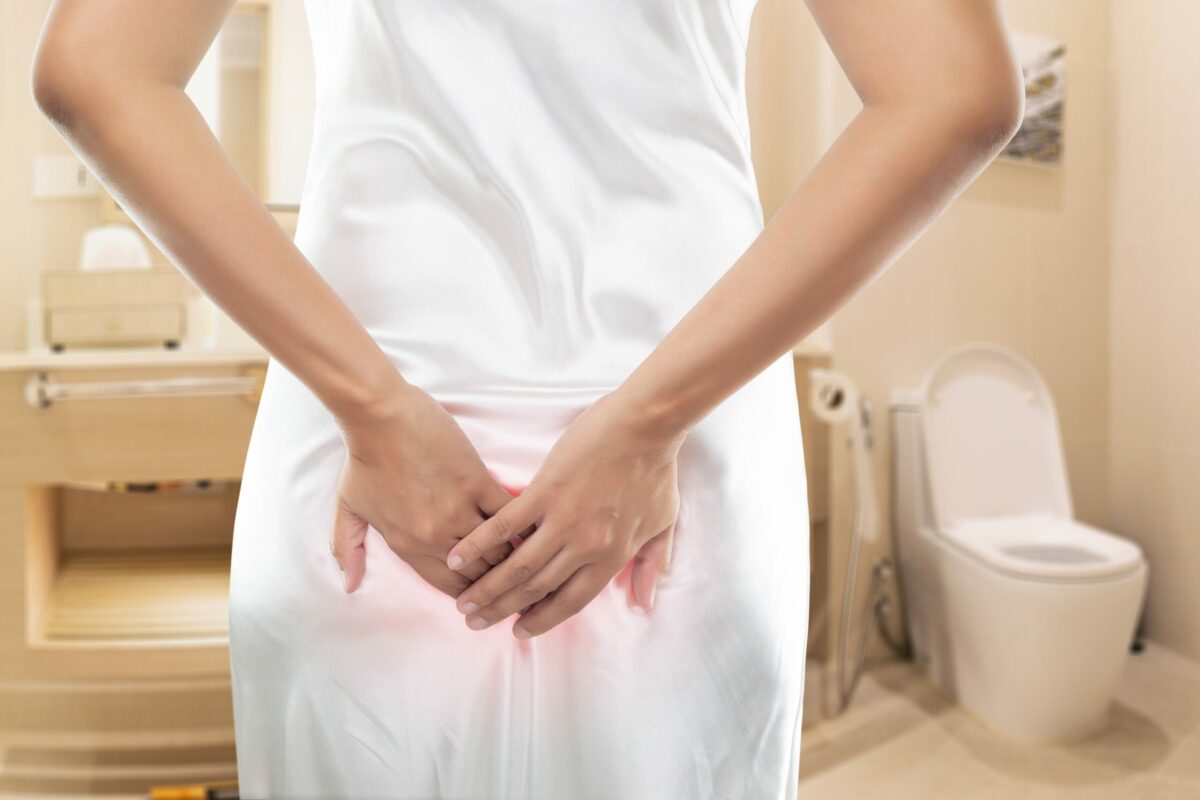When your blood vessels and veins around your anus become irritated and swollen is called hemorrhoids. It usually occurs when there is extra pressure on these vessels. This condition may appear in two forms internal (inside your anus) and external (under the skin around your anus). Hemorrhoids are very common in both women and men, especially in older age.
A woman may experience this condition during pregnancy because carrying a baby puts extra stress on the blood vessels in the pelvic area. Additionally, straining to push out the baby also puts increased pressure on these blood vessels.
Causes
The causes commonly are different among people. For example:
- Strain during bowel movement
- Pregnancy
- Older people
- Family history of hemorrhoids
- Chronic or long-term constipation or diarrhea
Check below who is at higher risk of developing hemorrhoids:
- Pregnant women
- Sit on the toilet for too long
- Are obese
- If you are lifting heavy weights
- People between 45 and 65 years old
Symptoms
The symptoms are different among people. In some cases, hemorrhoids may look like other health problems. However, consult a doctor to be sure. Check below the most common hemorrhoid symptoms:
- Red blood in your stool, on toilet paper, in your toilet bowl
- Irritation and pain around your anus
- A hard lump around your anus or swelling
- Itching
Diagnosis
Blood in the stool may be also a symptom of colorectal cancer. That’s why it is important to consult a doctor. Commonly, your physician will do several tests to diagnose hemorrhoids. Examples include:
- Colonoscopy – It looks at the full length of your large intestine. This test helps to identify if you have any abnormal growths, tissue that is red or swollen, sores (ulcers), or bleeding.
- Sigmoidoscopy – This test helps to check the inside part of your large intestine, which helps to determine the cause of belly pain, constipation, abnormal growth, diarrhea, and bleeding.
- Proctoscopy – In this test, a lighted tube is put into your anus, which gives a view of your entire rectum.
- Anoscopy – This procedure is used to see the internal hemorrhoids
- Digital Rectum Examination (DRE) – A physician inserts a greased (lubricated), gloved finger into your rectum to check for any issues.
- Physical Exam – It is usually done to verify your anus and rectum for swollen blood vessels
Treatment
Fortunately, different treatment options are available for hemorrhoids. Thus, your doctor will give you a care plan based on different factors. Examples include:
- Age, overall health, past health
- The severity of hemorrhoids
- Internal or external hemorrhoids you experience
- Your response to treatment, medicines, or therapies
Check below some examples that can help to lessen the symptoms:
- Ice packs
- Creams and medicines (suppositories)
- Sitting in warm and plain water several times daily
Additionally, your healthcare provider may direct you to add more fiber and fluids to your diet. This will help to soften the stool, which decreases the strain on blood vessels during bowel movement. Examples of foods include:
- Whole grains
- Vegetables
- Fruits
There are several types of surgeries that help to remove hemorrhoids in severe cases. For example:
- Hemorrhoidectomy and Hemorrhoidopexy – These are two procedures that help to remove permanently your hemorrhoids.
- Electrical Coagulation also called Infrared Photo Coagulation – In this surgery, it is used a special device that through a beam of infrared burns hemorrhoid tissue.
- Sclerotherapy – A chemical solution is injected around the blood vessels that help to shrink the hemorrhoid.
- Rubber Band Ligation – This procedure helps to get rid of hemorrhoids in a few days by a rubber band placed around the base of the hemorrhoid. This band helps to cut off the circulation of the hemorrhoid.
Complications
If you leave hemorrhoids untreated, it may lead to several complications. Check below some examples:
- If you experience bleeding from a long-term or chronic hemorrhoid, it may lead to low blood count, which leads to anemia.
- When a blood flow is cut off from a hemorrhoid it is stuck out (prolapsed). This can be very painful and cause bleeding. However, you may need surgery.
How to Prevent Hemorrhoids?
You can decrease the risk of getting hemorrhoids with the following steps. However, it is not always possible to stop hemorrhoids from occurring. Examples include:
- Adopt a healthy diet that includes plenty of fiber and liquids
- It is advised to limit the time that you spend sitting on the toilet
- Consult a healthcare provider right away to manage constipation and prevent straining
- Stay at a healthy weight
Frequently Asked Questions
Will hemorrhoids go away on their own?
If you experience small hemorrhoids, they may clear up without any treatment in several days. However, large hemorrhoids may need longer to heal and provoke discomfort, irritation, and pain. In case the hemorrhoids do not disappear in a few days, it is advised to see a doctor immediately.
What is the best way to get rid of hemorrhoids?
Check the following steps that can help you to treat or prevent hemorrhoids. Examples include:
- Drink many fluids and eat plenty of fiber to keep your poo soft
- Use an ice pack in a tower to lessen the discomfort
- It is advised to take a warm bath. It will help ease itching and pain
- Use Paracetamol in case the piles hurt
Ask your healthcare provider if you have any questions.
What is a stage 4 hemorrhoid?
In this stage, the hemorrhoid remains prolapsed outside the anus. In such cases, you may need surgery. However, talk to a doctor if you experience stage 4 hemorrhoid.




